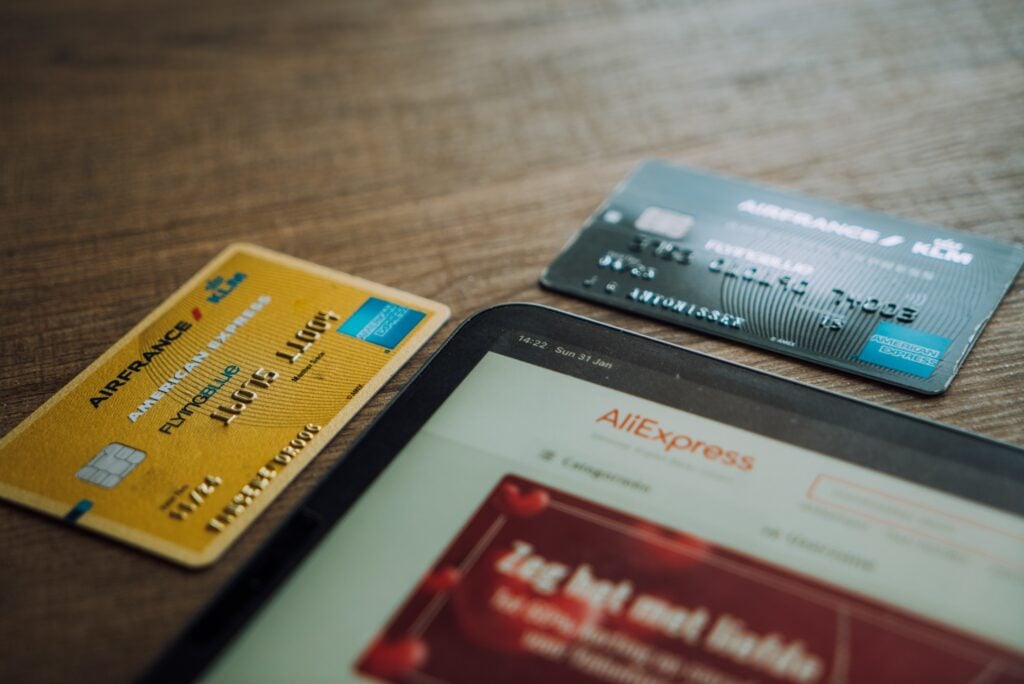Joint credit card (A guide)
In this brief guide, we are going to discuss the joint credit card, the benefits of a joint credit card and how to get a joint credit card.
What is a joint credit card?
A joint credit card is a credit card you get with someone else.
Usually credit providers will ask you if you want to add and add another cardholder to your credit card. The moment you do this you have turned your credit card into a joint credit card.
You may also be able to make a joint application with someone else such as your husband or wife for a credit card and hence a joint credit card. This is less common in the UK but possible.
In the UK the main account holder is always the liable party when a joint credit card is present. This is different to almost any other credit product where the main account holder and other account holders have equal liability for repaying the debt.

Advantages of a joint credit card
Adding an extra credit card holder is good when you have someone who needs to build their credit rating as the credit card will appear on their credit report and show the repayment history which will boost their credit score if the credit card is repaid in full on time and the credit utilization is below 30%.
A joint credit cardholder may also be god if you have a credit card where you are trying to earn rewards based on spending and you need to increase the amount of purchases you are making. This is the case with credit cards such as the British airways credit cards.
Having a joint credit card holder will mean that your family or friends can benefit from accessing credit without you having to be physically there. This means they can do the house shopping or whatever purchases they need to utilise credit for.
Joint credit cards are very common with businesses as they give their employees credit cards to incur business costs on.

Disadvantages of a joint credit card
The biggest disadvantage of a joint credit card is the fact that the liability for the credit card balance is born by one person and if you don’t have strict rules and how to use the card then they could overspend and leave you with the credit card debt.
A joint credit card will also make financial ties on your credit report and if this is with someone who has a history of fraud or bad credit it may affect your ability to get credit in the future.
When you have a joint credit card holder then the consumer protection under section 75 of the consumer credit act may not apply when the additional credit holder uses the joint credit card.

Tips on managing a joint credit card
The easiest way to manage a joint credit card is to ensure that the people who are using the card are well informed on how they should use it.
If the joint credit card holder is liable for the credit card balance then ensuring you have this in writing from them will avoid any disputes further down the line.
If you find that your joint credit card holder is ignoring your rules then you contact your credit card provider and ask for the joint credit card holder to be removed and for the card to be made inactive. Some credit card providers may require that you cut up the credit card and send it to them in the post.

What to consider when getting your credit card?
Whilst the joint credit card may be right for you, there could also be other potential credit cards which suit you better. It is always advisable to use a credit card eligibility checker
Which provides you with all the credit cards you may be eligible for outside of the joint credit card.
When comparing multiple credit cards; below are the things you should look out for before applying.
Eligibility
Each card issuer will have its own lending criteria that you will need to meet before they will provide you with an offer of credit. There are now credit card eligibility checker platforms which let you know which credit cards you are eligible for and which you have a high probability of getting on application.
Most credit card providers now have their own credit card eligibility systems in place which will let you know if you will be approved for a credit card with them or not. These tools use a soft credit check t pull your credit file data and hence does not leave any footprints which are visible to the public or harm your credit score.
You should avoid applying for a credit card if you are not confident you will be accepted as rejections for credit could damage your credit score and history. This may then affect your ability to get further credit in the future.
Interest rates
When getting a credit card, the interest rates on the credit card are a very important factor and you should always look out for the APR figure. The interest rates on the credit card are the rates that will be charged on any outstanding credit card balance which you carry over from one month to another.If you pay your credit card balance in full each month then you will not have any interest to pay.
Credit cards typically come with up to 55 interest-free days on purchases if you don’t carry a balance month-to-month.
Credit limits
You should look at the credit Credit limits when choosing a credit card provider as the credit card limits will determine how much you can spend on your credit card. Most credit card providers may offer you a credit limit increase if you can show good credit behaviour over a few months.
Rewards and perks
Credit card providers offer various rewards and perks but usually, these are reserved for applicants with high credit scores.
Fees
Some credit card providers will have annual fees on their credit cards but these are usually for credit cards with high credit card limits and lots of rewards or perks.
You should always check what fees are attached to your credit card.These can include annual or monthly account fees, cash advance (withdrawing cash using the card) fees, overseas transaction fees and others.

How to get your joint credit card
To get your joint credit card, check to see if you have a credit score first.
If you are unsure of what your credit score is then you should check your credit score from the four credit bureaus in the UK: Experian, Crediva, Equifax and Transunion.
Some of these credit bureaus may charge you a fee to view your credit report so what you can alternatively do is request a statutory credit report which is a free credit report which each credit bureau must provide to you upon you requesting it.
Alternatively, you can also use credit score services such as Checkmyfile and clearscore to check your credit report.
Once you have done this you should then check on a credit card eligibility platform to see what credit cards you are eligible for and then apply for the best credit card. This may be the joint credit card or it could be another credit card from a different provider which suits you better.
When getting a joint credit card it could be as an additional holder or a true joint credit card application will have to take place. This is dependant on where you live. In the UK we have so far not seen any joint credit card applications but rather the only way to have a joint credit card is by adding an additional credit cardholder.
You may be given this option during the credit card application or you may have to contact the credit card provider and request this much later.
For personal credit cards, providers might stipulate that the additional cardholder is a spouse, partner or close relative and that they must live at the same address.
They will usually also have to be over the age of 18 and a UK resident.
Because the credit card remains your responsibility and the extra cardholder doesn’t sign a credit agreement the extra cardholder won’t need to be credit scored.
The extra card will have a different Pin from your own.
In this blog we discussed the joint credit card. If you have any questions please let us know.
If you need financial advice and you live in the UK then you could contact the Money Advice service over the phone or via chat for impartial advice.
You can also contact the debt charity “Step Change” if you are in debt and need help.


